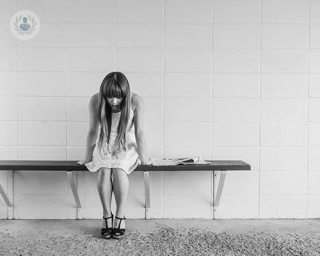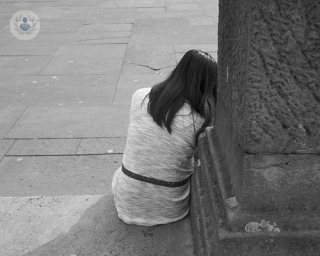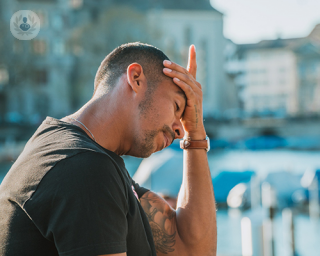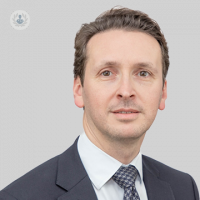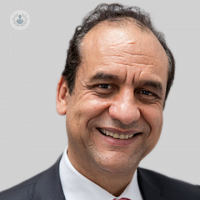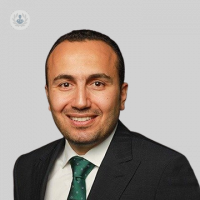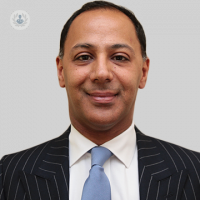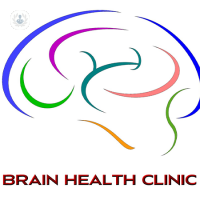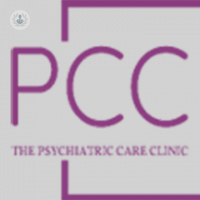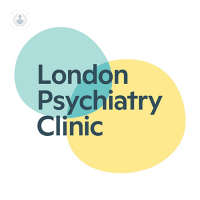Bipolar disorder
What is bipolar disorder?
Bipolar disorder is a mental health condition, in which the patient experiences both episodes of elation, high energy, or high productivity (mania), and episodes of feeling down or depressed, and, in some cases, episodes with symptoms of both. It used to be known as “manic-depression”, due to this duality.
The highs and lows can both last for weeks in extreme cases and can severely affect the life of the patient, as their mood swings from one extreme to the other.
Are there different types of bipolar disorder?
There are four recognised categories of bipolar disorder, each sharing characteristics of both mania and depression, but with varying frequencies, tendencies and intensities of the two.
- Bipolar I means that the patient has suffered at least one major manic episode lasting at least a week. Depressive episodes, or episodes with symptoms of both may also be present.
- Bipolar II is characterised by less severe mania (hypomania), but at least one major depressive episode. For diagnosis, the patient must never have suffered a major manic episode. As hypomania is easily mistaken for normal happiness, rather than a mood swing, it is often misdiagnosed simply as depression.
- Cyclothymia, or cyclothymic disorder, is a somewhat less extreme variation in which the patient has suffered numerous periods of hypomanic symptoms and periods of depressive symptoms over the course of at least 2 years (1 year in children).
- Unspecified bipolar – symptoms of mania or hypomania and depression are present, but do not meet currently accepted criteria for an episode.
Some psychiatrists suggest that bipolar and related conditions are best understood as a spectrum, but this view is disputed.

What causes bipolar disorder?
The exact mechanism of bipolar disorder is not fully understood, but it is thought that genetics play a big role. Environmental factors, such as childhood trauma or abuse, may also contribute.
What are the symptoms of bipolar disorder?
Manic episodes are characterised by:
- Feeling “up” – patient may feel elated or high.
- Having lots of energy
- Periods of increased activity or productivity
- Talking very quickly about lots of things, perhaps changing topic in conversations rapidly
- Feeling like your thoughts are racing
- Taking risks
- Trouble sleeping
- Feeling wired
- Irritability, or feeling agitated
Depressive episodes are characterised by:
- Feelings of sadness, emptiness or hopelessness
- Lack of energy
- Periods of decreased activity or productivity
- Feeling like you can’t enjoy anything
- Feeling emotionally numb or empty
- Trouble concentrating, forgetting things
- Trouble sleeping – sleeping too much or too little
- Feeling tired
- Overeating or undereating
- Suicidal thoughts, or thoughts about death
In certain cases, people with bipolar disorder suffer from psychosis during an episode, including hallucinations or delusions.
What can trigger an episode in people with bipolar disorder?
Episodes of hypomania as well as more severe, manic episodes can be triggered by a range of environmental factors which vary greatly from person to person. Having a good understanding of their individual triggers can help patients to manage their condition. Similarly, it is also important that the patient and their loved ones are aware of the warning signs of an oncoming episode.
Stress
Stress caused by a bereavement, major life changes, or financial difficulties is known to be a trigger for some patients suffering from bipolar disorder. In fact, in some cases, serious stress is the cause behind a patient’s first episode. The impact of stress is also connected to how a person is managing their bipolar disorder, as those in a stable condition are more likely to be able to deal with the stresses and strains of daily life. Therefore, having established and effective coping mechanisms as part of a treatment plan is an essential part of managing bipolar disorder.
Childbirth
Childbirth is known to be a potential trigger in some patients with bipolar disorder, including both women and men. In some cases, childbirth triggers a person’s first bipolar episode. Pregnant women who have been previously diagnosed as suffering from the disorder may, in coordination with their doctor, need to plan adjustments in their treatment to account for the risk of an episode being triggered around the time of their child being born.
Medication for other conditions
Changes in medication taken to treat either bipolar disorder itself or another condition can trigger episodes. Patients who are being treated for more than one condition should discuss this with their doctor to establish an optimal treatment plan.
Seasonal changes
Shifts in the weather and seasonal change throughout the year can also be a trigger for people suffering from bipolar disorder. Although some patients report experiencing increased depressive episodes during the colder months of the year and more manic episodes during spring and summer, this is not universal and can vary from person to person.
Sleep disturbance
Poor quality, limited or disturbed sleep is a common trigger for bipolar episodes and associated intense changes in mood. Maintaining good sleep habits and relaxation techniques can help bipolar sufferers to avoid this potential trigger.
Consumption of drugs and alcohol
Using drugs and drinking alcohol can trigger and worsen bipolar episodes and affect medications being taken as part of a treatment plan. Alcohol and drugs also increase a person’s risk of suicidal and depressive thoughts and behaviours.
Caffeine
Much like drugs and alcohol, caffeine is a stimulant that has the potential to alter a person’s mood and affect their sleep pattern, making it a possible trigger for bipolar episodes.
Although some bipolar episodes can be caused by known triggers, this is not always the case and episodes can also arise unexpectedly. However, avoiding caffeine, drugs and alcohol and maintaining a good sleep routine, as well as being aware of individual triggers is a good way of managing bipolar disorder.

Can bipolar disorder be cured?
There is no cure for bipolar disorder, but patients who have effective treatment and good management of their condition can live healthy, full lives. Continued treatment and developing effective self-management can help to control bipolar disorder, and patients can experience long periods of stability.
How is bipolar disorder treated?
Treatment for bipolar disorder is centred around controlling the patient’s mood swings. Each case is different, with different patients suffering episodes of varying duration, intensity, and symptoms. Therefore, treatment must be individualised.
Effective treatment plans usually involve a combination of medication, such as mood stabilisers and antidepressants, and talking therapy, such as CBT (cognitive behavioural therapy). Sleep medication or antipsychotics may be prescribed to counter specific symptoms.
What type of doctor treats bipolar disorder?
Psychiatrists specialise in diagnosing and managing the treatment of mental health conditions such as bipolar disorder.

